Government to ‘reevaluate’ power purchase agreements
3 min readThe federal government has formed an Inter-Ministerial Committee (IMC) to review the existing power purchase agreement (PPA) template, Business Recorder reported. Many economic experts have blamed such agreements for the high cost of electricity in the country.
The committee is tasked with protecting consumers from losses caused by inadequacies on the part of power producers.
Prime Minister Shehbaz Sharif took the decision during a meeting regarding the 969MW Neelum-Jhelum Hydropower Project, which has been dysfunctional for a long time due to design flaws.
Power Minister Sardar Awais Leghari will lead the committee. The water resources minister, planning commission deputy chairman, Power Division secretary, National Electric Power Regulatory Authority chairman, water resources secretary, and the Water and Power Development Authority chairman will be the members.
The purpose of the committee is to deliberate and present a report on consumer tariff issues arising from the collapse of the Neelum-Jhelum Hydropower Project’s tunnel.
PM Shehbaz raised the issue of the project’s serious design flaws during his recent visit to China with the China Energy and China Gezhouba Group, which built the project. He urged them to rectify the faults and make the project operational as soon as possible.
The formation of the committee is also timed with a wider discussion on the heat rate and capacity payments of independent power producers, which are estimated to reach around Rs2.8 trillion for the year 2024-25. This is mainly due to the massive devaluation of the Pakistani rupee against the US dollar, as well as changes in KIBOR and LIBOR rates.
The newly constituted IMC will be tasked with the following:
-
Examining the tariff impact of the frequent outages at NJHPP due to structural damages since its commercial operation date.
-
Developing a mechanism to shield consumers from additional charges due to plant outages caused by design or construction flaws.
-
Reviewing the existing PPA template to protect consumers from bearing losses caused by inadequacies on the part of power producers.
Moreover, Leghari has proposed taking up the profile of each IPP individually to know when their contracts will expire.
The power minister has also ordered the audit of dozens of IPPs agreements established during the last 30 years, jointly to be conducted by the PPIB, the CPPA-G and the Nepra.
Also, read this
Government notifies Rs7.12 per unit national tariff increase
Former Commerce Minister exposes mismanagement and corruption in IPP payment deals
Economist Kaiser Bengali spoke about the power agreements while appearing on Spotlight with Munizae Jahangir earlier this month.
“The reason for circular debt is capacity payments. The agreements were signed with power companies. We even pay for not producing electricity, so the electricity that was not produced and provinces did not use so how they should pay for it,” he said.
“I was in the Social Policy Development Centre and these agreements were being signed at that time. We raised voices against these agreements and said these are disasters and don’t do this, but despite that they [government] deliberately did this,” Bengali said.
The economist stated that the cost-plus revenue, capacity payments, and dollarised payments were also a disaster.
For the latest news, follow us on Twitter @Aaj_Urdu. We are also on Facebook, Instagram and YouTube.
















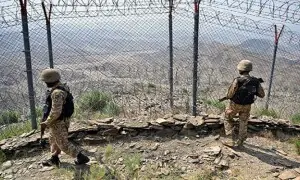

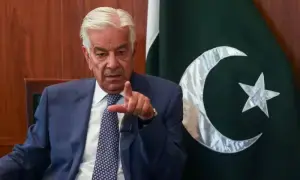


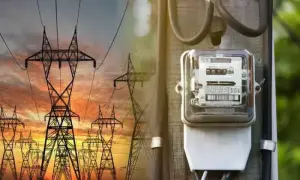

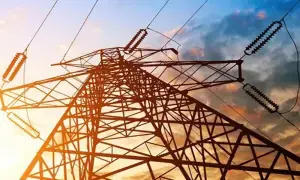
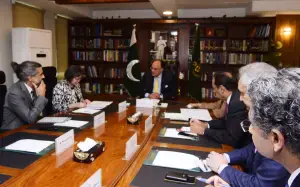


Comments are closed on this story.